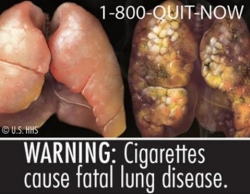By Mary Jane Dittmar
We are all familiar with the usual laboratory tests prescribed when we are undergoing our regular physical check-ups. There are checks on our cholesterol, high- and low-density lipid proteins, vital organs, and so forth. Sometimes, however, when we experience symptoms, our body could be telling us that our body’s store of a specific nutrient is too low. The need for more vitamin B-12, for example, is a fairly common problem.
The body uses vitamin B12 to form red blood cells that carry oxygen throughout our bodies; for neurological functions; to synthesize DNA; and for multiple other conversions, reactions, and syntheses.
Among the many symptoms of an inadequate supply of vitamin B12 are chest pain or shortness of breath; fatigue or unexplained weakness; dizziness, trouble with balance, fainting; confusion, memory loss, or dementia; coldness, numbness or tingling in the hands and feet; slow reflexes or diminished nervous system function; pale skin or yellowing of the skin; and sore mouth and tongue.
As you undoubtedly noticed, these conditions may also be indications of numerous other medical conditions. If you are experiencing any of them, consult with your medical practitioner. If your doctor doesn’t recommend a vitamin B12 level test, you may want to ask whether it should be included. It makes sense to look for the simplest causes of symptoms before searching for more complex problems.
Vitamin B12 exists in several forms and contains the mineral cobalt. Methylcobalamin and 5-deoxyadenosylcobalamin are the forms of vitamin B12 that are active in human metabolism.
Vitamin B-12 can be absorbed only in the small intestine. Problems in the digestive tract and less than optimal absorption in the small intestine could prevent or slow absorption of the vitamin. The lack of acid in the digestive system of elderly adults may also interfere with the absorption of vitamin B12. Diabetes and intestinal parasites also may affect absorption.
Interactions with Medications
Vitamin B12 has the potential to interact with certain medications, and some types of medications might adversely affect vitamin B12 levels. If you are taking any of these medications on a regular basis, discuss the matter with your healthcare provider. These medications include chloramphenicol (Chloromycetin®), a bacteriostatic antibiotic; proton pump inhibitors, such as omeprazole (Prilosec®) and lansoprazole (Prevacid®), used to treat gastroesophageal reflux and peptic ulcer disease; histamine H2 receptor antagonists, used to treat peptic ulcer disease, such as cimetidine (Tagamet®), famotidine (Pepcid®), and ranitidine (Zantac®); and Metformin, used to treat diabetes.
|
 |
Daily Intake
The U.S. Food and Drug Administration recommends a Daily Value (DV) of 6.0 mcg of vitamin B12. However, according to analyses of data from the 1988–1994 National Health and Nutrition Examination Survey (NHANES III) and the 1994–1996 Continuing Survey of Food Intakes by Individuals Data from the 1999–2000 NHANES, the median daily intake of vitamin B12 for the U.S. population is 3.4 mcg.
Foods
Vitamin B12 is naturally found in animal products, fish, meat, poultry, eggs, milk, and milk products. It generally is not present in plant foods, but many breakfast cereals are fortified with a readily available source of vitamin B12. Some nutritional yeast products also contain vitamin B12. As is stressed often in this column, it is important to read product labels to determine which added nutrients they contain. The U.S. Department of Agriculture’s Nutrient Database Web site lists the nutrient content of many foods and provides a comprehensive list of foods containing vitamin B12, http://www.ars.usda.gov/nutrientdata
Treatments
The most common treatments for vitamin B-12 deficiency are intramuscular injections; this method bypasses the digestive tract and makes the nutrient immediately to the bloodstream. There are also sublingual lozenges and tablets, intranasal gels, and skin patches. Many people take supplements. Although researchers say there is no evidence that suggests there are any differences among treatment forms with respect to absorption or bioavailability, they point out that the body’s ability to absorb vitamin B12 from dietary supplements is largely limited by the capacity of intrinsic factor–for example, only about 10 mcg of a 500 mcg oral supplement is actually absorbed in healthy people.
FDA’s New Health-Warning Cigarette Labels
Armed with research that shows that health warning labels on cigarette packages induce smokers worldwide to think about quitting smoking, the U.S. Food and Drug Administration (FDA) has announced that it will be alternating on all cigarette packages and advertisements within 15 months nine, color images—including some bodies ravaged by disease.
The images, paired with text health warnings, are required under the 2009 Family Smoking Prevention and Tobacco Control Act. They must appear on every cigarette pack, carton, and advertisement by September 2012.
According to the Centers for Disease Control and Prevention, tobacco use is the leading preventable cause of death, and, this year, approximately 5 million persons worldwide will die from tobacco-related heart attacks, strokes, cancers, and other diseases. In the United States, approximately 443,000 will die.
 |
Federal regulators unveiled nine graphic warnings that must be on cigarette packaging and advertisements by September 2012. The warning above shows healthy lungs (left) and the diseased lungs of a smoker. View the Warning Labels on Flickr |
In November, FDA officials posted 36 images on the Internet and gave the public 90 days to comment. The agency received more than 1,700 comments from the public, retailers, health professionals, advocacy groups, the tobacco industry, state and local public health agencies, and others.
Using the comments, scientific literature, and the results of an 18,000-person study, the FDA narrowed the images to nine. Each image, a mix of illustrations and photos depicting the negative health consequences of smoking, is paired with one of nine printed warnings. The phone number for the smoking cessation hotline—1-800-QUIT-NOW—will accompany each warning. For more information, visit www.fda.gov/cigarettewarnings.
REFERENCES:
1. National Institutes of Health, Office of Dietary Supplements, http://ods.od.nih.gov/factsheets/vitaminb12.
2. NaturalNews Insider Alert, www.NaturalNews.com.
Mary Jane Dittmar is senior associate editor of Fire Engineering and conference manager of FDIC. Before joining the magazine in January 1991, she served as editor of a trade magazine in the health/nutrition market and held various positions in the educational and medical advertising fields. She has a bachelor’s degree in English/journalism and a master’s degree in communication arts.


